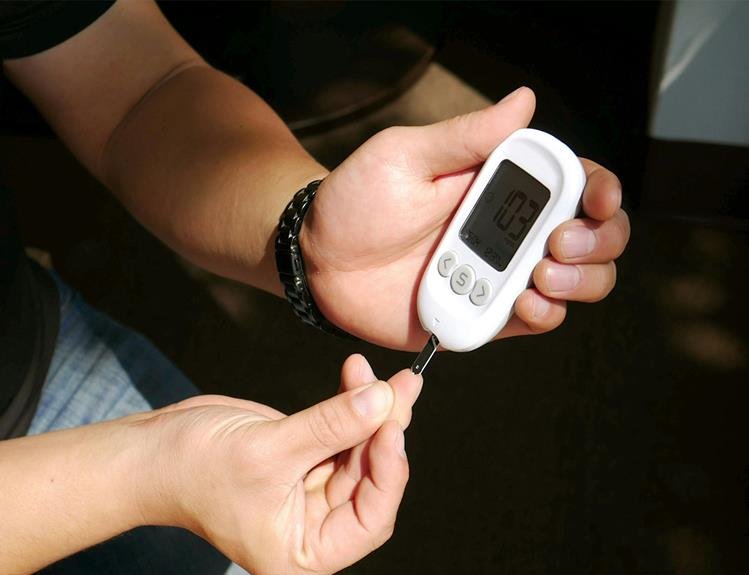Breaking Down the Myths About Diabetes in Women
Diabetes is a chronic condition that affects millions of people worldwide, with approximately 463 million adults living with the disease as of 2019. Despite its prevalence, there are still many misconceptions and myths surrounding diabetes, particularly in women. These myths not only contribute to the stigma surrounding the disease, but they also hinder proper education and understanding of how it affects women. As a result, women living with diabetes may face unique challenges and barriers to managing their condition. In this article, we will break down the common myths surrounding diabetes in women and provide evidence-based information to debunk these misconceptions. It is crucial to dispel these myths and shed light on the realities of diabetes in women to promote greater awareness, advocacy, and support for those living with the condition. With a professional tone, we will explore the facts and realities of diabetes in women, aiming to educate and empower readers to better understand and support women living with this chronic disease.
Diabetes does not discriminate gender.
It is important to recognize that diabetes is a condition that affects individuals regardless of their gender. While certain stereotypes may suggest that diabetes is more prevalent in men or that women are less susceptible to the disease, the reality is that both genders can be equally affected. Diabetes is a complex metabolic disorder that is influenced by various factors including genetic predisposition, lifestyle choices, and overall health. Therefore, it is crucial to dispel the myth that diabetes discriminates based on gender and instead focus on raising awareness and promoting preventive measures for all individuals, regardless of their gender identity. By addressing the misconceptions surrounding diabetes and embracing a gender-inclusive approach, we can foster a more comprehensive understanding of this condition and work towards better prevention, management, and support for everyone affected by diabetes.
for more articles on diabetes click here
Women are more likely to develop diabetes.
In the context of diabetes, research has shown that certain factors may contribute to a higher risk of developing the condition in women. Hormonal fluctuations, particularly during pregnancy and menopause, can impact insulin sensitivity and increase the likelihood of developing gestational diabetes or type 2 diabetes. Additionally, women with polycystic ovary syndrome (PCOS), a hormonal disorder, have an increased risk of insulin resistance and type 2 diabetes. It is essential to acknowledge these specific risk factors and provide targeted education, screenings, and interventions to empower women in managing their diabetes risk effectively. By understanding and addressing these nuances, healthcare professionals can play a vital role in supporting women in their journey towards diabetes prevention and management.
Pregnancy can affect diabetes management.
During pregnancy, the presence of diabetes can significantly impact a woman’s diabetes management. The hormonal changes and increased insulin resistance that occur during pregnancy can make it more challenging to maintain blood glucose levels within target ranges. This can require adjustments to medication dosages, frequent monitoring of blood sugar levels, and modifications to dietary and exercise routines. It is crucial for healthcare professionals to work closely with pregnant women with diabetes to develop personalized care plans that address their unique needs and ensure the health and well-being of both the mother and the baby. Regular prenatal check-ups, blood glucose monitoring, and close communication with the healthcare team are essential to optimize diabetes management during pregnancy and help reduce any potential risks associated with the condition. By providing comprehensive support and guidance, healthcare professionals can empower women with diabetes to have healthy pregnancies and successful outcomes.
Menopause can impact diabetes control.
As women reach menopause, they experience various hormonal changes that can have a significant impact on their diabetes control. During this stage, the body’s production of estrogen and progesterone decreases, leading to increased insulin resistance and fluctuations in blood glucose levels. This can make it more challenging for women with diabetes to maintain optimal control over their blood sugar levels. Moreover, menopausal symptoms such as hot flashes and sleep disturbances can further complicate diabetes management by affecting appetite, energy levels, and overall well-being. Therefore, it is crucial for women in menopause to work closely with their healthcare professionals to develop individualized strategies that address the unique challenges they may face in managing diabetes during this transitional phase. By proactively addressing these issues and adjusting treatment plans as needed, women can effectively navigate the impact of menopause on their diabetes control and maintain overall health and quality of life.
Stress can affect blood sugar levels.
Stress, a common occurrence in our fast-paced lives, can have a significant impact on blood sugar levels in individuals with diabetes. When we experience stress, our bodies release hormones such as cortisol and adrenaline, which can cause blood sugar to rise. This is because these stress hormones trigger the liver to release stored glucose into the bloodstream, providing a surge of energy for the body’s “fight or flight” response. For individuals with diabetes, who already have difficulty regulating blood sugar levels, this can pose a challenge. Managing stress through techniques such as deep breathing exercises, meditation, regular exercise, and seeking support from loved ones or professionals can help in maintaining stable blood sugar levels. It is important for women with diabetes to be aware of the potential impact of stress and incorporate stress management strategies into their diabetes management plans. By taking a proactive approach to stress management, women can better control their blood sugar levels and improve overall health and well-being.
Exercise is crucial for diabetics.
Regular exercise is crucial for individuals with diabetes as it offers a multitude of benefits for managing the condition. Physical activity helps to improve insulin sensitivity, allowing the body to effectively utilize glucose for energy. It also aids in weight management, reducing the risk of obesity and related complications. Exercise can help to lower blood sugar levels, as the muscles use glucose for energy during physical activity. Additionally, regular exercise can improve cardiovascular health, reduce the risk of heart disease, and boost overall well-being. It is important for women with diabetes to incorporate exercise into their daily routines, seeking guidance from healthcare professionals to determine suitable activities and intensity levels. By making exercise a priority, women with diabetes can take proactive steps towards better managing their condition and promoting overall health.
Healthy eating is key for managing diabetes.
Maintaining a healthy eating pattern is essential for effectively managing diabetes in women. By making mindful food choices and following a well-balanced diet, individuals with diabetes can regulate their blood sugar levels and minimize potential complications. A diet rich in whole grains, lean proteins, fruits, and vegetables can provide essential nutrients while controlling carbohydrate intake. Portion control is also crucial, as consuming appropriate serving sizes helps to manage blood glucose levels and maintain a healthy weight. Additionally, limiting the consumption of processed foods, sugary beverages, and saturated fats can further support diabetes management. By working closely with a registered dietitian or healthcare professional, women with diabetes can develop personalized meal plans that meet their nutritional needs and empower them to take control of their health.
Early detection can save lives.
Early detection plays a vital role in saving lives, especially when it comes to managing diabetes in women. Regular check-ups and screenings enable healthcare professionals to identify potential warning signs or risk factors for diabetes at an early stage. This early intervention allows for timely treatment and lifestyle modifications, which can help prevent the progression of the disease and minimize the associated complications. By raising awareness about the importance of early detection, we can empower women to take charge of their health and proactively seek medical assistance, ultimately improving their overall well-being and quality of life.
In conclusion, it is important to dispel the myths surrounding diabetes in women and educate ourselves on the facts. While it is true that women may face unique challenges when it comes to managing their diabetes, it is also essential to recognize that with proper care and support, women with diabetes can lead healthy and fulfilling lives. By breaking down the myths and addressing the issues facing women with diabetes, we can work towards a future where all individuals, regardless of gender, have access to the resources and support they need to thrive. Let us continue to spread awareness and advocate for better care for women with diabetes.
FAQ
What are some common myths about diabetes in women that need to be debunked?
Some common myths about diabetes in women that need to be debunked include the belief that only overweight individuals can develop diabetes, that women with diabetes cannot have children, and that diabetes only affects older individuals. It is important to understand that diabetes can affect people of any weight, women with diabetes can have successful pregnancies with proper management, and diabetes can develop at any age. Education and awareness are key in dispelling these myths and promoting accurate information about diabetes in women.
How does gender play a role in the development and management of diabetes in women?
Gender can impact the development and management of diabetes in women due to hormonal fluctuations, pregnancy-related factors, and differences in healthcare access and communication. Women with diabetes may experience unique challenges such as gestational diabetes during pregnancy, polycystic ovary syndrome (PCOS) which increases diabetes risk, and menopause-related changes affecting blood sugar levels. The societal expectations regarding women’s roles in caregiving and health management can also influence diabetes outcomes. Tailored treatment plans, regular screenings, and education on self-care practices can help address these gender-specific factors in managing diabetes effectively in women.
Are there specific challenges or barriers that women with diabetes face that are different from men?
Women with diabetes face unique challenges such as hormonal fluctuations during menstruation, pregnancy, and menopause which can affect blood sugar levels. Additionally, women are more likely to experience depression and eating disorders which can impact diabetes management. Access to healthcare and support services may also be limited for women in some communities, making it harder to manage their condition effectively. Overall, the combination of physiological, psychological, and societal factors create specific barriers for women with diabetes that are different from those faced by men.
How can education and awareness help to break down the myths surrounding diabetes in women?
Education and awareness can help break down myths surrounding diabetes in women by providing accurate information about the causes, symptoms, and management of the condition. This can empower women to make informed decisions about their health, reduce stigma, and encourage early detection and treatment. By promoting understanding and dispelling misconceptions through education, it can also foster a supportive environment for women living with diabetes and encourage healthier lifestyle choices that can prevent or manage the condition effectively. Ultimately, education and awareness play a crucial role in combating misinformation and promoting better outcomes for women with diabetes.
What are some important facts or statistics that women should know about diabetes to help dispel misconceptions?
Women should be aware that diabetes affects both genders equally, and that it is not necessarily caused by a poor diet or lack of exercise. Additionally, women with diabetes have a higher risk of heart disease and stroke compared to men. It is important for women to know that diabetes can be managed effectively with proper medical care, diet, and exercise, and that early detection and treatment can greatly improve quality of life. Finally, women should be aware that pregnancy can increase the risk of developing gestational diabetes, and proper care during pregnancy is crucial for both mother and baby.






